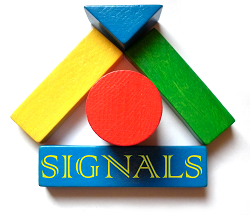SIGNALS – Strengthening Activity-Oriented Interaction and Growth in the Early Years and Transition
 SIGNALS Project Description
SIGNALS Project Description
The United Nations Convention on the Rights of the Child recognises that it is a fundamental right and obligation for parents to be involved in their children’s development and education. Research also shows that parent engagement is important for enhancing healthy child development and improved learning. When it ensures focussed communication with ECEC staff and ongoing support for children’s learning at home, parent engagement is strongly associated with children’s later academic success and high school completion (Starting Strong III, 2012)
With this in mind, universities in seven countries – Germany, Denmark, Greece, Hungary, Romania, Sweden and Iceland – have decided to form the SIGNALS project. The acronym SIGNALS was chosen as it illustrates the various steps that participating countries will undertake in this collaborative learning journey, namely, to:
- Strengthen mutual understanding between children, parents and early education staff
- Improve interaction between these groups for the good of children
- Generate through common projects a shared learning experience
- Nominate in the different countries Exemplary Co-operative Education Practice teams
- Acknowledge children as competent agents of their own development and learning, worthy to be involved in the co-construction of the project
- Link SIGNALS outcomes with further professional development for staff and for the ongoing education of parents
- Shape a European model based on reciprocal consultation
In sum, the project will enable parents and early education staff to build together positive relationships that will ensure the development and education of young children; improve the interactive and pedagogical competences of education staff and parents; initiate and nurture Exemplary Co-operative Educational Practices (ECEPs) among all actors.
Outcomes
Each group of researchers from the participating institutions will:
- Develop initial training and/or professional development courses for staff with the aim of strengthening parent engagement in the early education of their children;
- Document good practice in the countries concerned; and lastly
- Publish a compendium of research papers on the projects undertaken.
Impacts
Positive influences from the project will include the following:
Staff will gain
- Greater understanding of individual children’s lives and their cultural backgrounds;
- Support to reflect on how young children learn and on their own teaching practice;
- Knowledge of new documentation practices and reflection techniques.
Parents will gain
- Enhanced self-confidence in their parenting role;
- Greater knowledge of appropriate educational practice for young children;
- Opportunities to set developmental and learning goals for their children, and regular discussion about their attainment and progress;
Children will gain
- Experience of being accepted as competent agents of their own learning;
- Increased self-esteem, social skills and socio-emotional development;
- Better school attendance, higher graduation rates, and later academic success.
